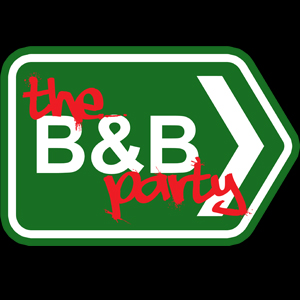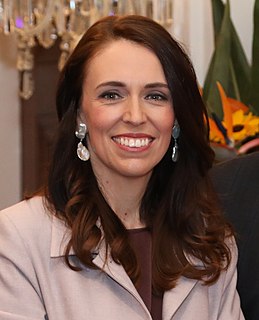Related Research Articles

ACT New Zealand, known simply as ACT, is a right-wing, classical-liberal political party in New Zealand. According to former party leader Rodney Hide, ACT's values are "individual freedom, personal responsibility, doing the best for our natural environment and for smaller, smarter government in its goals of a prosperous economy, a strong society, and a quality of life that is the envy of the world". Young ACT is its affiliated, albeit unofficial, student wing.
New Zealand First, commonly abbreviated to NZ First, is a nationalist and populist political party in New Zealand. The party formed in July 1993 following the resignation on 19 March 1993 of its leader and founder, Winston Peters, from the then-governing National Party. Peters had been the sitting Member of Parliament for Tauranga since 1984 and would use the electorate as the base for New Zealand First until consecutive defeats by National Party candidates in 2005 and 2008. His party has formed coalition governments with both major political parties in New Zealand: first with the National Party from 1996 to 1998 and then with the Labour Party from 2005 to 2008 and from 2017 to 2020. Peters has served on two occasions as deputy prime minister.

The Workers Party of New Zealand was a socialist political party in New Zealand. It published a monthly magazine called "The Spark". In February 2013 the party was transformed from a "mass workers party" to a "fighting propaganda group". The organisation was renamed to Fightback.

Aotearoa Legalise Cannabis Party (ALCP), also known as the Cannabis Party, is a political party in New Zealand. It is dedicated to removing or reducing restrictions on the use of cannabis and similar substances.
The People's Choice Party was a New Zealand political party. It was a registered party from 1999 to 2002, and its members have contested mayoral, local, and national elections since 1998.

The New Zealand electoral system has been mixed-member proportional (MMP) since the 1996 election. MMP was introduced following a referendum in 1993. It replaced the first-past-the-post (FPP) system New Zealand had previously used for most of its history. New Zealanders elect their members of parliament (MPs) with two votes. The first vote is for a candidate from an electorate. The second vote is used to elect ranked party lists.

The Non-Custodial Parents Party was a minor political party in Australia from 2001 to 2020. It supported less government control of many aspects of daily family life, focusing on reform of family law and child support.

The Bill and Ben Party was a New Zealand joke political party formed in 2008 and voluntarily deregistered in 2010. The party's leaders were Jamie Linehan and Ben Boyce of the TV3 satirical sports show Pulp Sport. In the 2008 general election the party secured 0.56% of the vote, outpolling every other party not in parliament prior to the election. It gained the ninth-highest number of votes out of the 19 parties standing for election.

The 2014 New Zealand general election took place on Saturday 20 September 2014 to determine the membership of the 51st New Zealand Parliament.
New Conservative is a political party in New Zealand. Observers have described the party's policies as far-right, though the party itself disputes this. It advocates for lower taxation, anti-abortion measures and austerity cuts.

The Internet Party was a registered political party in New Zealand that promoted Internet freedom and privacy. The party was founded in January 2014 with the financial support and promotion of internet entrepreneur Kim Dotcom, and was first led by former Alliance MP Laila Harré, then by citizen journalist Suzie Dawson.

The 2017 New Zealand general election took place on Saturday 23 September 2017 to determine the membership of the 52nd New Zealand Parliament. The previous parliament was elected on 20 September 2014 and was officially dissolved on 22 August 2017. Voters elected 120 members to the House of Representatives under New Zealand's mixed-member proportional (MMP) voting system, a proportional representation system in which 71 members were elected from single-member electorates and 49 members were elected from closed party lists. Around 3.57 million people were registered to vote in the election, with 2.63 million (79.8%) turning out. Advance voting proved popular, with 1.24 million votes cast before election day, more than the previous two elections combined.

The Opportunities Party is a centrist political party based in New Zealand. It was founded in 2016 by economist and philanthropist Gareth Morgan. The party is based upon an idea of "evidence-based policy", with policy priorities of "Universal Basic Income (UBI)", "Affordable Housing and Rent", "Smart Small Business", and "Climate Friendly Recovery".

The 2020 New Zealand general election was held on Saturday 17 October 2020 to determine the composition of the 53rd parliament. Voters elected 120 members to the House of Representatives, 72 from single-member electorates and 48 from closed party lists. Two referendums, one on the personal use of cannabis and one on euthanasia, were also held on the same day. Official results of the election and referendums were released on 6 November.

Vision NZ is a nationalist political party in New Zealand led by Hannah Tamaki, the co-leader of the fundamentalist Christian movement Destiny Church. The party was announced in May 2019. It contested the 2020 New Zealand general election both for electorate seats and the party list vote, receiving 0.1% of the party vote and winning no seats.

The next New Zealand general election to determine the composition of the 54th Parliament of New Zealand will be held no later than 13 January 2024, after the currently elected 53rd Parliament is dissolved or expires.

The Australian Federation Party (AFP), formerly known as the Country Alliance and the Australian Country Party, is an Australian political party. Founded in 2004 by four rural Victorians, the party lodged its initial registration with the Victorian Electoral Commission on 15 August 2005.

The Advance New Zealand Party was a short-lived political party in New Zealand from 2020 to 2021. The idea was first unveiled in a newsletter from founder Jami-Lee Ross in April 2020. Ross has claimed that the party was a centrist and anti-corruption movement designed to appeal to voters "in the middle"; however, their main policies represent the political fringe rather than centre.
The New Zealand TEA Party is a registered political party in New Zealand. The party is led by John Hong. The party contested the 2020 general election, but did not win any seats.
References
- 1 2 "Registration of political party cancelled". Elections.org.nz. 14 March 2003. Archived from the original on 23 April 2003. Retrieved 31 July 2020.
- ↑ "NMP - New Millennium Partnership". Archived from the original on 5 August 2011. Retrieved 31 July 2020.
- ↑ "1999 GENERAL ELECTION - Summary of Overall Results". www.electionresults.govt.nz. Retrieved 31 July 2020.
- ↑ "Registered parties' declared election expenses, 1996-2002" (PDF). Elections.nz. 2003. Retrieved 31 July 2020.
- ↑ "Official Count Results -- Overall Status". Electoral Commission. Retrieved 7 August 2013.